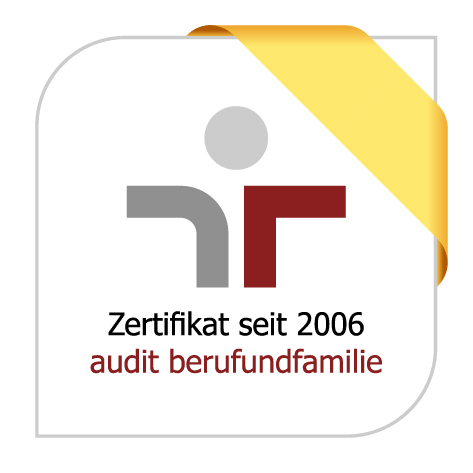Das Max-Planck-Institut für Wissenschaftsgeschichte (MPIWG) ist ein international anerkanntes Forschungsinstitut der Max-Planck-Gesellschaft (MPG) mit derzeit zwei wissenschaftlichen Abteilungen, mehreren Forschungsgruppen und einer Doktorand*innen-Schule. Derzeit arbeiten hier ca. 200 feste Mitarbeiter*innen und Gäste aus aller Welt.
Die Institutsverwaltung unter Leitung von Katja Henning-Hofmann sucht zum 16.02.2026 im Rahmen einer Nachfolge aufgrund von Renteneintritt
eine Sachgebietsleitung Einkauf (m/w/d)
– unbefristet, Vollzeit, 39 Std./Woche, EG 11 nach TVöD Bund –
Die Institutsverwaltung unterstützt die wissenschaftliche Arbeit am Institut grundlegend und mit einer starken Serviceorientierung. Als Sachgebietsleiter*in Einkauf (m/w/d) sind Sie Teil eines Verwaltungsteams mit 20 engagierten Kolleg*innen und haben die fachliche Leitung für das Sachgebiet Einkauf mit 2 Mitarbeiter*innen.
Ihre Aufgaben umfassen:
- Leitung des Sachgebiets Einkauf inkl. Vorbereitung von Grundsatzentscheidungen im Beschaffungswesen,
- Beratung der Bedarfsträger im Institut bzgl. aller Arten von Beschaffungen,
- Durchführung von nationalen und internationalen Ausschreibungen nach den geltenden Regelungen des Vergaberechts sowie EU-Verordnungen,
- Durchführung von Bauausschreibungen nach VOB und HOAI für alle 4 Institutsgebäude,
- institutsübergreifende Warengruppenverantwortung für das MPG-weite eProcurement-system für die Warengruppe Büromaterial und Papier,
- Systemadministration für das eProcurement von SAP sowie
- die einkaufsseitige Vertretung des Instituts gegenüber Dritten (Auftragnehmern, Dienst-leistern etc.)
Sie verfügen über:
- Abgeschlossene kaufmännische Berufsausbildung oder Bachelor in BWL
- mehrjährige einschlägige Berufserfahrung im Einkauf, idealerweise in leitender Funktion,
- Erfahrungen in öffentlichen Einrichtungen, Verwaltungen, außeruniversitären Forschungseinrichtungen,
- Erfahrungen mit SAP MM, eProcurement, eRechnung etc.,
- Gründliche und umfassende Kenntnisse zur
- Unterschwellenvergabeordung (UVgO),
- Verordnung über die Vergabe öffentlicher Aufträge, Vergabeverordnung (VgV),
- Gesetz gegen Wettbewerbsbeschränkungen (GWG),
- Vergabe- und Vertragsordnung für Bauleistungen VOB,
- bürgerliches Gesetzbuch (BGB),
- gründliche Kenntnisse des Handelsgesetzbuches (HGB).
- umfangreiche Kenntnisse der Vorschriften des Aussenwirtschaftsgesetzes (AWG), der Aussenwirtschaftsverordung (AWV) und der internationalen Handelsklauseln,
- Kenntnisse der Zollverordnung und das Zollverwaltungsgesetz,
- Gute Englischkenntnisse sowie
- Teamgeist, Pragmatismus und einen Faible für die Digitalisierung von Geschäfts-prozessen.
Wir bieten:
- flexible Arbeitszeiten, Möglichkeit zum Mobilen Arbeiten nach Absprache mit den Vorgesetzten und Möglichkeit zur Arbeit in Teilzeit,
- Jahressonderzahlung, Betriebliche Altersvorsorge (VBL), Zuschuss zum Jobticket für den öffentlichen Nahverkehr in Berlin bzw. zum Deutschland-Ticket Job, Freistellung mit Gehalt an Heiligabend (24.12.) und Silvester (31.12.) zusätzlich zum regulären Jahresurlaub,
- wöchentliche Yoga-Kurse am Institut, regelmäßige Informationen über Kurse der kooperierenden Krankenkassen im Rahmen des Betrieblichen Gesundheits-managements,
- Zugang zum umfangreichen Fortbildungsangebot der Planck-Academy der MPG,
- enger Kontakt zu allen wissenschaftlichen und wissenschaftsunterstützenden Einheiten, mit der Möglichkeit zu einem direkten, persönlichen Austausch,
- einen internationalen Kontext mit Mitarbeitenden und Gästen aus über 40 Nationen.
Die Max-Planck-Gesellschaft fördert Chancengleichheit und eine inklusive Arbeitskultur. Als Institut der MPG setzen wir uns für eine diskriminierungs- und belästigungsfreie Arbeits-gemeinschaft für alle ein. Wir fordern ausdrücklich qualifizierte Personen zur Bewerbung auf, die Gruppen angehören, die aufgrund von Alter, Behinderung, ethnischer Zugehörigkeit, Familien-stand, Geschlecht, Nationalität, sexueller Orientierung, sozioökonomischem Hintergrund oder Religion am Arbeitsplatz häufig unterrepräsentiert sind.
Für mehr Informationen über das Max-Planck-Institut für Wissenschaftsgeschichte und seine Maßnahmen zur Gleichstellung der Geschlechter und zur Einstellung von Menschen mit Schwerbehinderung, sowie über die deutsche Antidiskriminierungspolitik (Allgemeines Gleichbehandlungsgesetz) besuchen Sie bitte die entsprechenden Seiten.
Ihre Bewerbung:
Bitte bewerben Sie sich mit Ihren vollständigen und aussagekräftigen Unterlagen, vorzugsweise ohne Foto, inkl. Anschreiben, Lebenslauf, Abschluss und Arbeitszeugnissen – Zeugnisse bitte jeweils zusammengefasst in einem PDF-Dokument über unser Bewerbungsportal:


